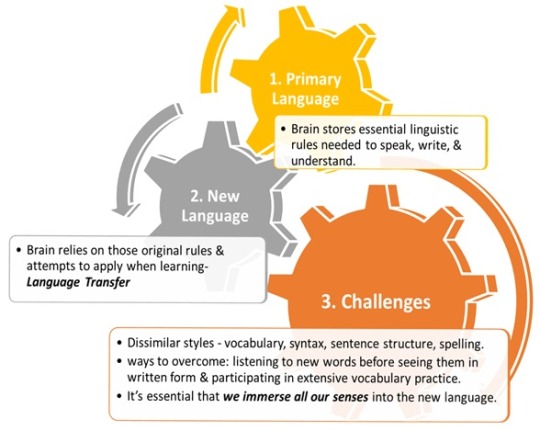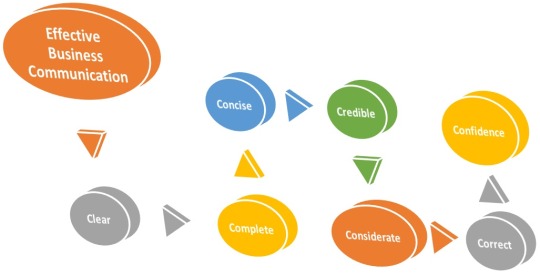#being forced to talk if youre nonverbal will definitely improve your social skills. definitely not stunt them permanently
Text
if one more person puts the nonverbal people should be forced to speak because they need to learn social skills post on my dash im going to explode
#its been several people now!! i hate that post and everyone on it#i genuinely hate halloween. none of you people are normal about autistic ppl or ppl with selective mutism thumbs up#how many ppl whove reblogged that post adding commentary about how weird and entitled kids are know about blue candy buckets#im gonna guess not many!!#definitely no infantilizing or assuming that people grow out of being nonverbal on that post definitely not#the people who think nonverbal children are weird and rude and creepy definitely have normal responses to nonverbal teens and adults#being forced to talk if youre nonverbal will definitely improve your social skills. definitely not stunt them permanently#or cause borderline agoraphobia as you learn that no one gives a fuck about the pain youre in if it makes them personally uncomfortable#definitely not another wonderful post showing that ppl dont understand that anxiety can be more than just. being scared of phone calls#“learn the difference between discomfort and pain” i have! im so fucking aware!! i was in pain!! youre the one uncomfortable right now#learn to fucking deal with it#m not even nonverbal/selectively mute anymore n this shit still makes me angry#probably bc i also get frustrated by how many ppl are shitty to me when i say i dont like halloween because of how i was treated as a kid#which just. intensifies it i guess#i dont know#ill reblog lil ceepo after this thmbs up#lil ceepos misery is increasing
0 notes
Text
PSYCHOLOGICAL BARRIERS TO COMMUNICATION
Think back to a time when you learned a new skill quickly. Now, consider what was going on in your life at that time. Were you in good physical, mental, and emotional health? Was life just going your way? Your mood, attitude, and motivation can affect how easily you can pick up a new skill- for example., learning a new language:

Definition: Psychological Barriers
The psychological barrier of communication is the influence of psychological state of the communicators (sender and receiver) which creates an obstacle for effective communication.
Causes of Psychological Barriers
Lack of Attention:
When a person’s mind is distracted or preoccupied with other things, the person is not able to form proper messages, listen to what others tell him/her, interpret the message as required and give proper feedback. The communication will face problems and becomes ineffective. Examples:
1) A person in tragedy, for instance, does not want to listen to other people giving advice.
2) A person might be preoccupied by the problems of his/her professional life or personal life, which affects both.
Poor Retention:
Retention of information is the capacity of the memory of the brain to store information. The Brain does not store all the information it comes across, but only the ones it deems useful for future. So, half the information is lost in the retention process.
Similarly, brain also loses information that is old and not taken as useful with time. Extracting the information is also a process in the formation of message. Here, the brain tries to remember the required information, the fragments of which have already been lost.
For example, you were told about a friend coming to meet you before a month and had been given the person’s name, address, phone number, etc. Now, you have to communicate the information to somebody else. At the time, you only remember the name and address and forget the phone number. The truth can change or distort due to poor retention which acts as barrier to communication.
Distrust and Defensiveness:
Communication is successful when the communicators trust each other. Lack of trust makes them derive negative meaning of the message and they ignore the message. When a person tries to force his/her own ideas and opinions, then receiver does not listen. If the receiver does not agree to the message provided or thinks of it as a threat, he/she will not listen to it. Similarly, when the message is not transferred across to the receiver, the communication fails. For example, I don’t trust a friend, I will only give the details, of what is happening in my personal life which I think are harmless.
Perception, Viewpoint, Attitudes and Opinions:
Perception is the mindset using which people judge, understand and interpret everything. Each person has his/he own perception of reality which is shaped from mental and sensory experiences.
Likewise, viewpoint is also a mindset to look at the world. Sender might have a particular viewpoint that is not shared by the receiver. The sender does not explain the viewpoint but takes the viewpoint as granted. The message is not understood by the receiver as must have been understood, creating a barrier to effective communication.
Attitude is the established way in which we think and feel about things and ideas which also creates a psychological communication barrier. For example, a person takes females to be weak which is the person’s perception. He/she tells that to someone who does not think so. This causes a misunderstanding between the two. Everything they communicate after that becomes unsuccessful that the view of the person is already set.
Emotions:
Anyone who isn’t in a good mood is likely to talk less or talk negatively. A preoccupied mind is not good at communicating. For example, when a person is angry, he/she might say things they regret later. Even when listening to someone else speak, an angry person might easily misinterpret the message.
Various other emotions like fear, nervousness, confusion, mistrust and jealousy affect communication process. For example, a person having extreme moods of happiness will laugh at anything at all said to him/her. The same person when sad will cry or get angry at insignificant situations.
Closed Mind and Filtering:
Man is selfish by nature and put his own needs and problems above all else. This sometimes leads people to filter information that someone is trying to convey to them. This might be due to mistrust, competition, jealousy, or the view that the message is insignificant.
For example, a senior in a company does not want the junior to do better at work, the person filters the information and does not provide crucial information that could help the junior. The junior therefore will not be able to complete the work properly and progress in ranks. Similarly, when a person is close minded, the person will have fixed opinions on many things which the person believes resolutely. The person will interpret any information in a negative way.
For example, a sexist person does not accept the suggestions of a female colleague in a meeting that affects the communication flow in the meeting. It is difficult to argue with such close minded people and give proper information.
Premature Evaluation:
Some people are always in a hurry by habit. These kinds of people most likely make quick judgments and jump into conclusions. They do not consider all aspects of the information such as social, cultural, economic, etc., and often end up taking quick and wrong decisions.
It is important to hear the whole message to make proper judgments because they are not changed easily after they are once made.
For example, a person who is in a hurry and is talking on the phone does not listen to half the message and makes the decision which is wrong in the situation.
Psychological barriers affect communication more as information is formed in the brain and is sent by people with various psychological condition which differs from one moment to another. Information is as effective as the people involved make it. Similarly, the psychological condition of the receiver also has as much importance as the sender’s. Communication is ineffective if psychological aspects of communication acts as a barrier to communication.
Effective Communication is King in a Crisis:
Communication is a crucial aspect of our lives whether that be personal or professional and although it is common to believe that communication is simply the exchange of words, it is much more than that.
A speaker’s words only account for a fraction of the information being transmitted, 7% to be precise. Your non-verbal cues such as your facial expressions, tone of voice and body language have much more of an influence on how the message will be received.
Often in interactions, when verbal and nonverbal massages fail to align, it can decrease clarity, rapport and most importantly trust. As such, the importance of effective communication skills must not be overlooked.
In the world of business, communication is regarded as an essential skill; one that can always be improved and one that is pivotal to the success of organisational process. Increased productivity, reduced conflict and greater job satisfaction are just a few of the positive outcomes associated with effective communication in the workplace. Yet it continues to remain a key challenge for many businesses and a lack of communication within and across teams can result in poor customer experience.
As challenging as it may be, it is essential that effective internal and external communication be the norm within your organisation. This goes beyond putting processes in place, it should be part of the organisation’s DNA. The right people should be communicated to at the right time to ensure customers are being helped efficiently and to present a united front.
Of all the key stakeholders we communicate with, in our daily working practices, there is little denying that the customer is king. How we communicate with our customers directly impacts upon the quality of the customer experience, which in turn influences satisfaction and the likelihood of repeat business. But how exactly can we enhance the quality of our customer communication processes?
Here are the seven C’s, which is a great tool to ensure effective business communication:

Clear
Ensure there is clarity in the message you are delivering so that it can be interpreted the way you intended it to be. You must have a clear understanding about the purpose and goal of the message and what you hope to accomplish in the exchange.
Complete
The message must hold all the information and facts needed by the audience in order for them to make an informed decision or take action. Incomplete messages can significantly breakdown communication and open the doors for misinterpretation.
Concise
Brief, succinct messages that are to the point are crucial as it shows your clarity of thought. Minimise irrelevant information and unnecessary details to avoid misunderstanding, instead focus on the key points you want to highlight.
Credible
This implies being transparent in communication and including supporting facts from credible sources to support your message, as it will strengthen the message and build confidence.
Considerate
Showing compassion and politeness in verbal exchanges creates for a respectful dialogue, one where both viewpoints are considered. Demonstrate that you are not just hearing but listening to what is being said. Simply showing empathy and attempting to understand the receiver’s needs can go a long way in building that lasting relationship.
Correct
The information you communicate should be free from error including language and grammatical mistakes, this essentially supports the credibility of the information being delivered and makes you appear knowledgeable and professional.
Confidence
To get your message across effectively you need to exude confidence. This means displaying positive body language, breaking down complex concepts in a simple and engaging way and responding proactively to unexpected situations. Consider things such as eye contact, hand gestures and your stance. For example, a relaxed, open stance, and a friendly tone can make a big difference in others seeing you as approachable.
Content Curated By: Dr Shoury Kuttappa

#teamwork#leadership#collaboration#cooperation#coordination#communication#psychological#barriers#management
0 notes